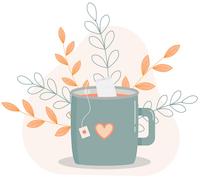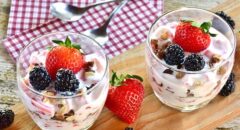
The story began when my friend Lourdes was traveling in Europe and decided to stop at a charming tea store in Paris. The owner suggested a cup of linden tea, and from that moment on, it has become a passion that she proudly cultivates even in her backyard. Whenever we go out, she loves to share her passion with others. And she always tells about the many health benefits of linden tea. She says it helps with anxiety, insomnia, digestion, and end stress!
Anti-stress teas, also known as relaxation teas or calming herbs, are well-known for their purported benefits in reducing stress and promoting relaxation.

Scientific evidence. Herbs used in anti-stress infusions, such as chamomile, lavender, valerian, and St. John’s wort, are the subject of periodic scientific studies to evaluate their effects.
Placebo. The placebo effect may be essential in perceiving the benefits of anti-stress infusions. Drinking a hot, aromatic cup of tea has a calming effect due to expectations and mental associations.
A complement, not a replacement. Anti-stress herbal teas should not be considered the sole solution for stress management. Stress management techniques are best when used with healthy habits, such as exercise, meditation, eating well, and getting enough sleep.
Include these infusions in your daily routine.
1️⃣ Chamomile. We now know from a study published by U.S. scientists that chamomile is an excellent stress reliever. Participants in this study who were stressed and anxious felt calm and relaxed after drinking chamomile tea. The benefits of this product are countless. Not only does it help burn fat, but it also acts as an exceptional diuretic and potent antioxidant. In addition, it promotes lowering LDL cholesterol and is an abundant source of vitamin E, which protects our skin. It is also an anti-stress product thanks to its high theanine (an amino acid) content.
2️⃣ Linden. Very often recommended for its soothing characteristics. In addition to being anti-stress, linden is good at night, falling asleep or during the day to concentrate and work smoothly.







